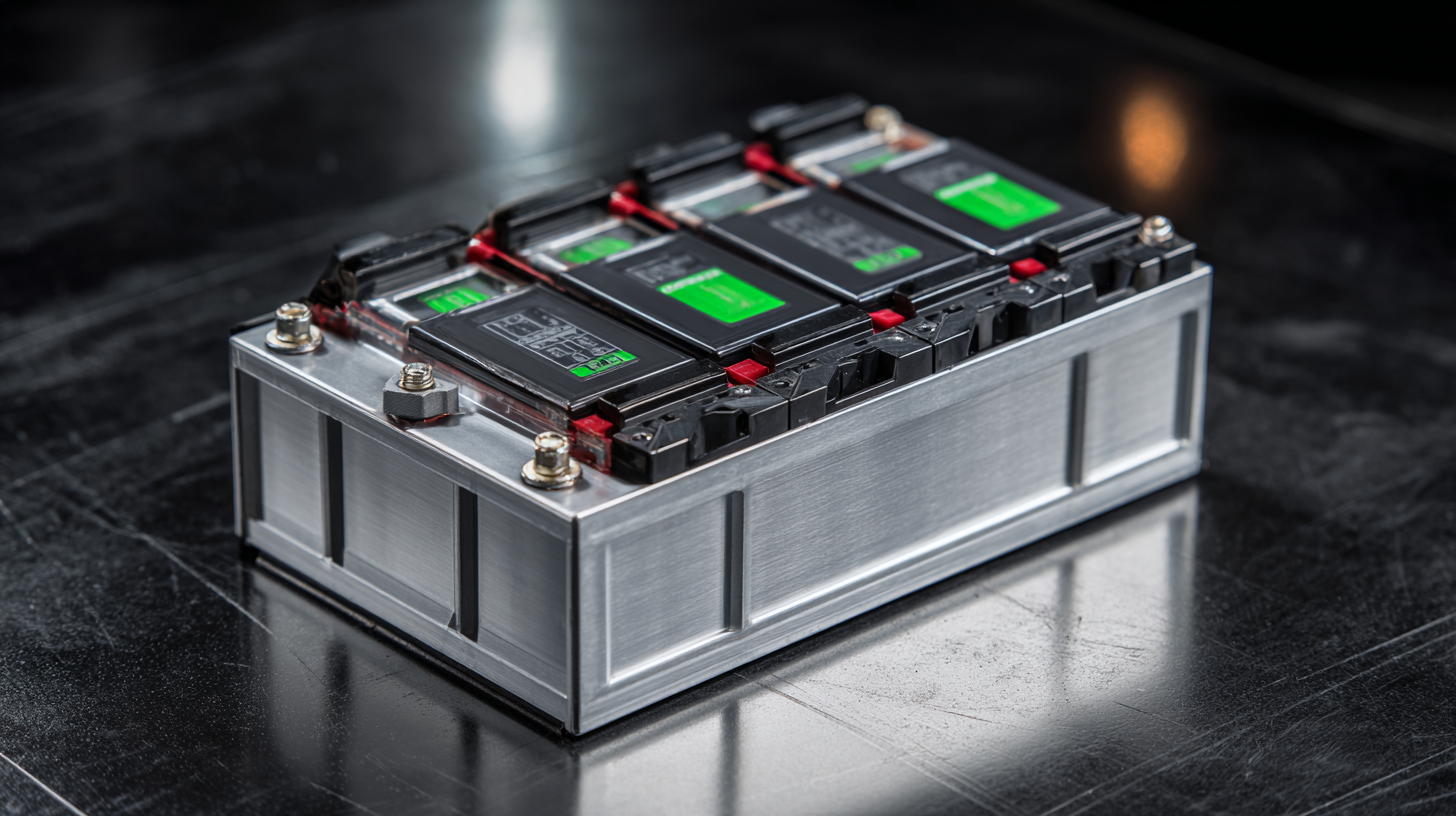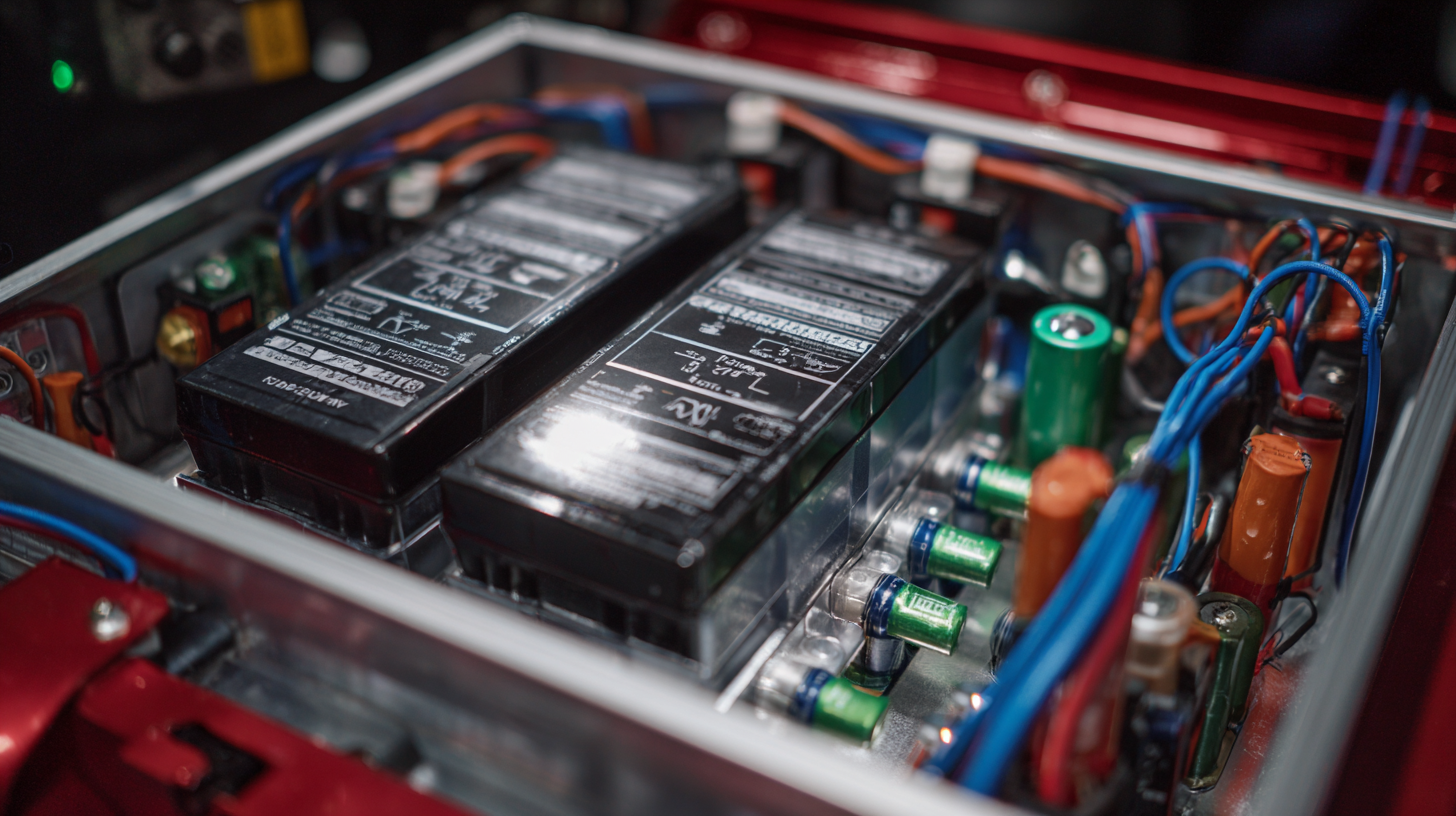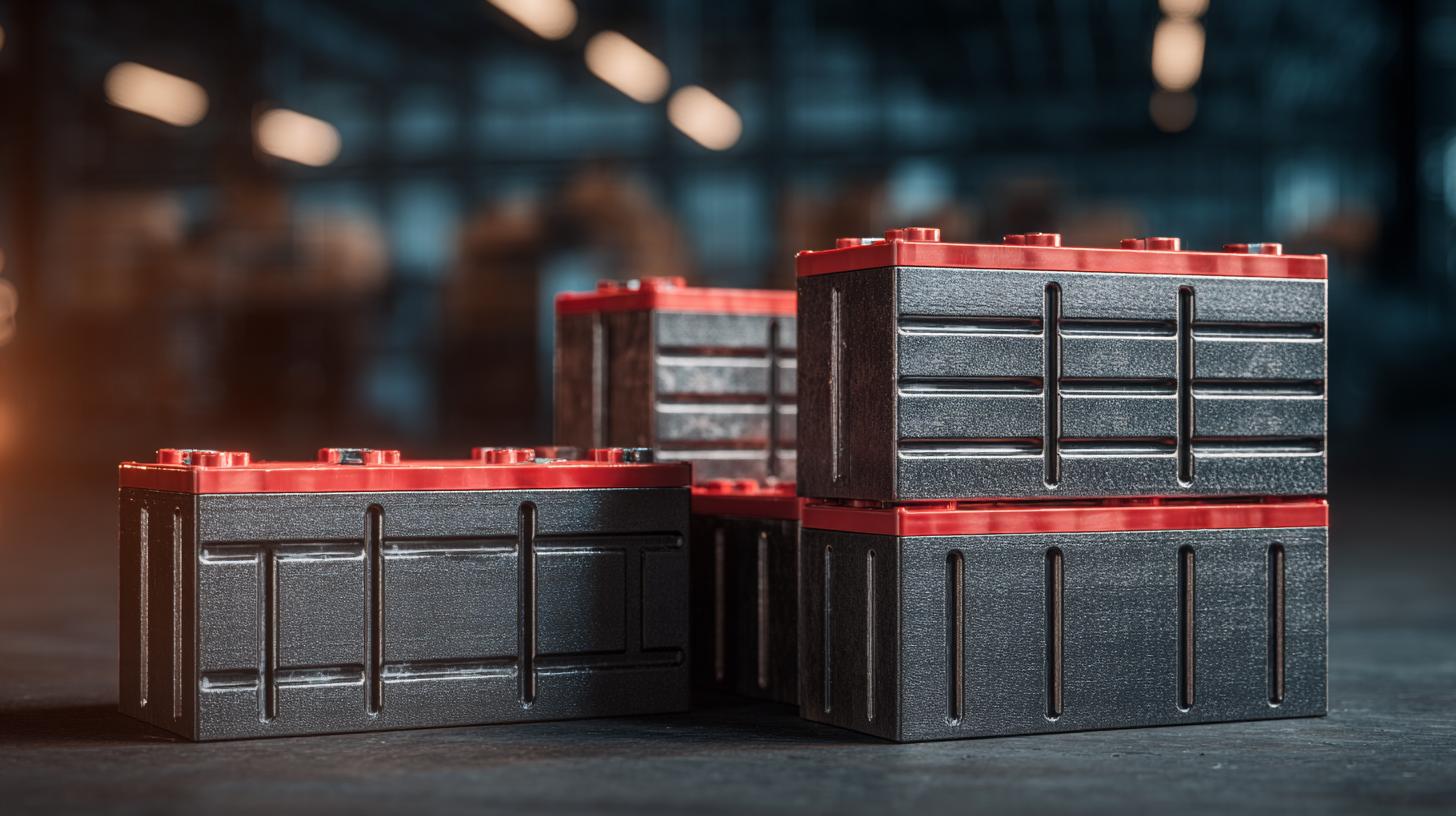Understanding the Industry Standards for Best 12v Lithium Iron Battery Production
Table of Contents
- Advantages of After-Sales Service in 12v Lithium Iron Battery Production
- Cost Analysis of Repair and Maintenance for Lithium Batteries
- Real-World Examples of Effective After-Sales Solutions
- Best Practices in Warranty Management for Lithium Battery Products
- Case Studies on Reducing Repair Costs in Battery Manufacturing
- FAQS
- Related Posts
As the demand for efficient and sustainable energy solutions continues to surge, the significance of industry standards in the production of 12v Lithium Iron Batteries cannot be overstated. According to recent market research, the global lithium battery market is projected to grow at a CAGR of 12% through 2025, driven by advancements in technology and increased adoption across various applications, including household energy storage and electric vehicles.
 Roofer Electronics Technology (Shanwei) Co., Ltd., boasting over 27 years of expertise in R&D and manufacturing of lithium batteries, recognizes the crucial role that stringent industry standards play in ensuring product reliability and performance. With an extensive portfolio that caters to power tools, electric bicycles, and household appliances, Roofer is poised to lead innovations in the 12v Lithium Iron Battery sector, aligning with emerging technological trends and enhancing the overall energy storage landscape for a sustainable future.
Roofer Electronics Technology (Shanwei) Co., Ltd., boasting over 27 years of expertise in R&D and manufacturing of lithium batteries, recognizes the crucial role that stringent industry standards play in ensuring product reliability and performance. With an extensive portfolio that caters to power tools, electric bicycles, and household appliances, Roofer is poised to lead innovations in the 12v Lithium Iron Battery sector, aligning with emerging technological trends and enhancing the overall energy storage landscape for a sustainable future.
Advantages of After-Sales Service in 12v Lithium Iron Battery Production
After-sales service plays a crucial role in the production and utilization of 12v lithium iron batteries. As the demand for these batteries rises, manufacturers are recognizing that customer satisfaction extends far beyond the point of sale. Effective after-sales support ensures that clients receive timely assistance with installation, troubleshooting, and maintenance, ultimately enhancing the overall user experience. This commitment to service instills confidence in consumers, knowing that they can rely on their manufacturer for continuous support throughout the product lifecycle.
Moreover, a robust after-sales service program can significantly boost a company’s reputation in the highly competitive battery industry. Providing regular updates, warranty support, and easy access to replacement parts demonstrates a manufacturer's dedication to quality and customer care. This not only fosters loyalty among existing customers but also attracts new clients who prioritize reliable service. In an era where technology constantly evolves, demonstrating excellence in after-sales support is vital for businesses looking to differentiate themselves and maintain long-term relationships with their customers.
Understanding the Industry Standards for Best 12v Lithium Iron Battery Production
This chart illustrates the advantages of after-sales service in 12v lithium iron battery production, highlighting the impact on customer satisfaction and product longevity across different manufacturers.
Cost Analysis of Repair and Maintenance for Lithium Batteries
When considering the cost analysis of repair and maintenance for lithium batteries, it is essential to recognize the long-term implications on overall operational costs. Lithium iron batteries are highly durable and offer longer lifespans compared to traditional lead-acid batteries, which can significantly reduce the frequency of mandatory replacements. However, regular maintenance is crucial to ensure optimal performance and to extend the life cycle of these batteries. This includes routine checks for cell integrity, thermal management, and firmware updates on battery management systems, all of which can involve both time and monetary investments.

Moreover, while lithium batteries typically have lower repair costs due to fewer components and a reduced likelihood of failure, specific issues can arise, such as battery swelling or electrolyte leakage. Addressing these problems requires specialized training and equipment, which can escalate repair expenses. Additionally, the cost of sourcing replacement parts must be factored into the overall maintenance budget. By understanding these expenses and developing a strategic maintenance approach, businesses can not only optimize performance but also enhance the longevity of their lithium battery systems, ultimately leading to significant cost savings in the long run.
Real-World Examples of Effective After-Sales Solutions
Exploring effective after-sales solutions is crucial for companies producing 12v lithium iron batteries, especially as the automotive industry undergoes rapid transformations. Recent trends indicate that AI-based models are significantly enhancing the after-sales service capabilities within the automotive aftermarket. In-depth analysis of vehicle performance data and maintenance records not only streamlines fault diagnosis but also improves overall service quality. For instance, industry reports suggest that businesses leveraging AI solutions have witnessed a 30% reduction in service response times, which translates directly to increased customer satisfaction.
Moreover, the implementation of the new "three guarantees" policy has reshaped customer expectations regarding after-sales support. According to surveys conducted within the automotive sector, 65% of consumers now prioritize comprehensive after-sales service offerings when selecting manufacturers or dealerships. As companies adapt to these evolving standards, embracing innovative after-sales strategies will be essential for maintaining market competitiveness and fostering long-term customer loyalty. By integrating advanced technology and responsive service models, producers can effectively cater to these heightened consumer demands.
Best Practices in Warranty Management for Lithium Battery Products
In the rapidly evolving field of lithium battery production, warranty management plays a crucial role in maintaining customer trust and satisfaction. According to a report by the Battery Innovation Center, nearly 70% of consumers consider warranty length as a key factor when purchasing lithium iron batteries. It highlights the importance of transparent and comprehensive warranty policies that cater to the specific needs of users while addressing concerns regarding performance and longevity.

Tip: Establish a clear warranty policy that details coverage against manufacturing defects, performance efficacy, and expected lifespan. This can serve as an essential tool for customer retention and can enhance your brand reputation within the industry.
Furthermore, the International Energy Agency states that the average failure rate for lithium iron batteries stands at approximately 5-10% over their service life. This statistic emphasizes the need for proactive warranty management strategies that not only serve as a safety net for your clients but also provide an opportunity for manufacturers to analyze product performance and implement necessary improvements.
Tip: Regularly review and update your warranty terms based on customer feedback and failure analytics to ensure relevancy and competitiveness in the market. Adopting such best practices can lead to improved product reliability and customer loyalty.
Case Studies on Reducing Repair Costs in Battery Manufacturing
In the competitive landscape of battery manufacturing, reducing repair costs is a critical focus for enhancing efficiency and profitability. One effective approach involves the implementation of rigorous quality control measures throughout the production process. By investing in advanced testing technologies, manufacturers can identify defects early, minimizing the need for extensive repairs later. Case studies have shown that companies implementing these strategies have significantly lowered their repair expenditures while maintaining a consistent product output.
Tip: Regular training for employees on the latest manufacturing technologies and repair techniques can further reduce mistakes that lead to costly repairs. A knowledgeable workforce is your best asset in achieving high-quality production standards.
Another essential factor in curbing repair costs is optimizing the supply chain. Establishing strong relationships with suppliers and integrating just-in-time inventory management can decrease the chances of defects due to outdated materials or components. Case studies indicate that organizations that streamline their supply chains not only reduce costs but also enhance overall product reliability.
Tip: Conducting periodic assessments of supplier performance can help identify areas for improvement, ensuring that only the highest-quality materials are used in the production of lithium iron batteries.
FAQS
: After-sales service is crucial as it ensures customer satisfaction beyond the point of sale, providing timely assistance for installation, troubleshooting, and maintenance.
Effective after-sales support enhances the user experience by instilling confidence in consumers, assuring them that they can rely on the manufacturer for continuous assistance throughout the product lifecycle.
A strong after-sales service program boosts a company’s reputation by demonstrating dedication to quality and customer care, fostering loyalty among existing customers and attracting new ones.
Companies are using AI-based models to enhance after-sales service capabilities, leading to improved fault diagnosis and a 30% reduction in service response times, which boosts customer satisfaction.
According to recent surveys, 65% of consumers prioritize comprehensive after-sales service offerings when selecting manufacturers or dealerships, reflecting a shift in customer expectations.
Embracing innovative after-sales strategies is essential for maintaining market competitiveness and fostering long-term customer loyalty in response to evolving consumer demands.
Offering regular updates and warranty support demonstrates a manufacturer’s commitment to customer care, enhancing trust and satisfaction among consumers.
Comprehensive after-sales service offerings significantly influence consumers' choices, as many prioritize reliable support and solutions when selecting where to purchase batteries.
After-sales service plays a key role in the battery product lifecycle by providing necessary support, maintenance, and responsiveness, ensuring optimal performance and customer satisfaction.
Companies can differentiate themselves by demonstrating excellence in after-sales support and integrating advanced technology to meet evolving consumer expectations.
Related Posts





 business@roofer.cn
business@roofer.cn +86 13502883088
+86 13502883088









